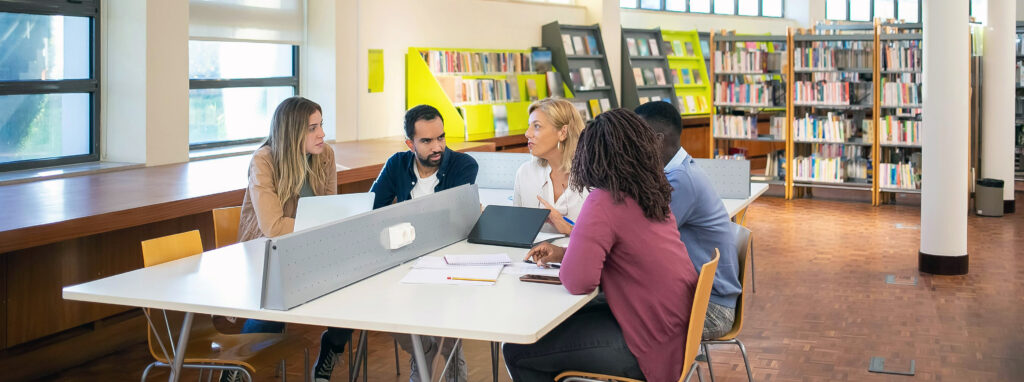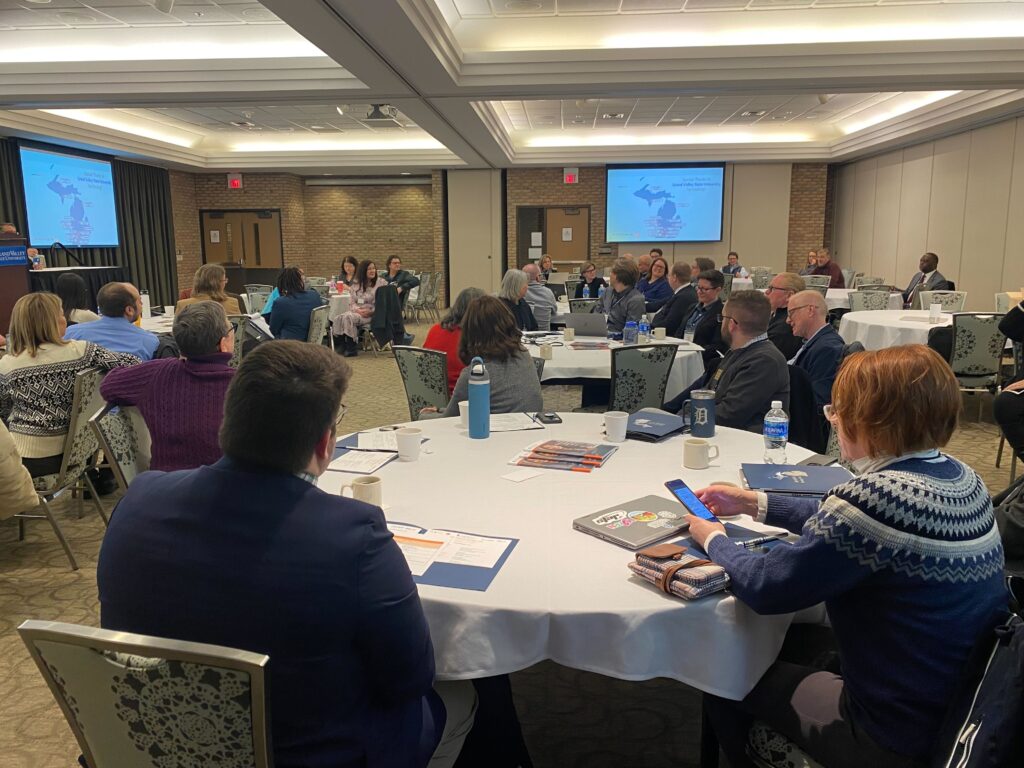With a $45 million initiative announced this year, the state of Michigan has made an unprecedented investment in helping public colleges and universities change institutional practices that will dramatically increase student graduation rates.
The Student Success Grants include five transformational opportunities to advance toward the state’s Sixty by 30 goal for 60% of working-age Michiganders to have a certificate or college degree by 2030.
Achieving that goal will ensure Michigan is a talent leader, by fueling the future workforce and providing opportunity for all.
Given the importance of the objective and recognizing the complexity of the grant requirements, the state Office of Sixty by 30 has established the Elevated Readiness Program, which provides technical assistance for preparing competitive Success Grant proposals at no charge to community and tribal colleges, and public universities in Michigan.
Assistance can include:
- Coaching throughout the proposal writing process
- Resources that provide tips to construct successful proposals
- Logic model and assessment design
- Budget planning
- Proposal writing and editing
The Elevated Readiness Program is being coordinated for institutions through the Michigan College Access Network (MCAN), Michigan Community College Association (MCCA), Michigan Association of State Universities (MASU), and The Michigan Center for Adult College Success.
Getting started
During a recent webinar for state colleges and universities, The Center, in partnership with MASU and MCAN, outlined best practices for successful proposals — and the many supports available to prepare them. (MCCA is hosting similar Elevated Readiness activities for community colleges.)
• View a recording of the webinar
• View the presentation slides
Michelle Burke, The Center’s director of Postsecondary Programs and Partnerships, summarized tips for successful proposals, including:
• Focusing on student success: “The whole point of Sixty by 30 is increasing postsecondary completion. So, showing clear criteria that focuses on student success should be what you’re putting in your application.”
• Building on proven practices: Burke encouraged institutions to base their proposals on successful programs at other institutions or expand the scale of their own successful initiatives. She cited two resources: The Center’s recently completed MI-RAISE Design Lab and Complete College America’s College Success Grant Examples and Resource Guide.
• Providing evidence and data: Burke said grant evaluators will be looking for two kinds of data — data about the students to be served and data about the intervention itself. “We can match you with a consultant that can really come in with an outside view and help you put together how what you want to do fits in with your institution’s strategic plan.”
Leveraging resources
Burke encouraged institutions to take advantage of the many resources available to craft successful proposals. These include:
- Reading the College Success Grants FAQs, updated regularly, as well as other resources provided by the office of Sixty by 30, including virtual office hours, webinars and evaluation plan guidance.
- Accessing the technical assistance provided by The Center, including assessment and logic model design, facilitation services for program planning, professional proposal writing and editing, budget development, and grant writing webinars and workshops. The Center has virtual office hours 9-10 a.m. Tuesdays and 3-4 p.m. Thursdays.
- Contacts for targeted assistance:
- Community and Tribal Colleges: Erica Orians, eorians@mcca.org.
- Public Universities: Michelle Burke, m.burke@talentfirst.net, 616-888-3131
- Institutions seeking the Reconnect Community Action Grant: Jamie Storey, jstorey@micollegeaccess.org and Dominique Devereaux, dominique@micollegeaccess.org, 517-316-1713
The Student Success Grants are designed to meet institutions where they are, when they are ready, and to support them in achieving significantly better outcomes for students.
“Our public colleges and universities play an essential role in our state’s ability to compete and prosper, so that all Michiganders can thrive,” said Sarah Szurpicki, director of the Office of Sixty by 30. “We are proud to partner with them through the Student Success Grants and to help them develop programs that are right for their campuses and the student populations they serve.”


